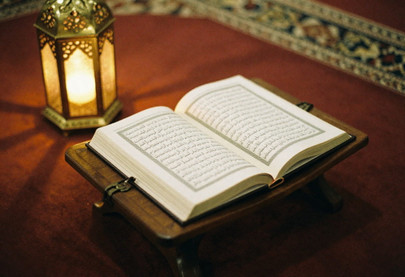Answering Your Most Common Questions About Ramadan Mubarak 2025
As Ramadan Mubarak approaches, many individuals have questions about its practices, significance, and related topics. This blog post aims to address some of the most common inquiries regarding fasting, zakat, and other important aspects of this holy month.
Why do Muslims fast during Ramadan Mubarak?
Fasting during Ramadan is one of the Five Pillars of Islam, which are fundamental acts of worship. The purpose of fasting is to develop self-discipline, empathy for the less fortunate, and a closer connection to God. It serves as a time for spiritual reflection, self-improvement, and increased devotion.
Who is required to fast during Ramadan Mubarak?
Fasting during Ramadan is obligatory for all adult Muslims who are physically and mentally capable. Exemptions are made for individuals who are ill, pregnant, nursing, menstruating, traveling, young children, or the elderly. Those unable to fast are expected to make up the missed days later or provide charity to the needy.
What does a typical day during Ramadan look like?
A typical day during Ramadan Mubarak begins with a pre-dawn meal called suhoor, followed by the Fajr (dawn) prayer. Muslims then abstain from eating and drinking until sunset. The fast is broken with the iftar meal, often starting with dates and water, followed by a larger meal. After iftar, Muslims perform the Maghrib (sunset) prayer and may engage in additional prayers, including the special taraweeh prayers held at night during Ramadan.
Do you lose weight during Ramadan?
While fasting during Ramadan may lead to initial weight loss, many individuals experience weight gain due to changes in eating habits and reduced physical activity. The primary focus during Ramadan is spiritual growth and self-discipline, rather than weight management.
Why do the dates of Ramadan change every year?
Ramadan follows the Islamic lunar calendar, which is approximately 11 days shorter than the Gregorian calendar. As a result, the start date of Ramadan shifts earlier each year, moving backward by about 11 days annually.
What is the significance of the Night of Power (Laylat al-Qadr)?
Laylat al-Qadr, or the Night of Power, is believed to be the night when the Quran was first revealed to Prophet Muhammad (PBUH). It is considered the holiest night of the year, and worship on this night is believed to be more rewarding than a thousand months. Muslims seek this night during the last ten days of Ramadan, especially on odd-numbered nights.
What is Eid al-Fitr?
Eid al-Fitr is the festival that marks the end of Ramadan Mubarak. It is a day of celebration, gratitude, and communal prayers. Muslims gather for a special prayer service, give charity to the needy (known as Zakat al-Fitr), and enjoy meals with family and friends. Eid al-Fitr is a time to express gratitude to God for the strength and patience shown during Ramadan.
How can non-Muslims show support during Ramadan Mubarak?
Non-Muslims can show support during Ramadan Mubarak by being respectful of fasting practices, such as avoiding eating or drinking in front of those who are fasting. Learning about Ramadan and its significance can also foster understanding and appreciation. Additionally, participating in community events or charitable activities organized during Ramadan can be a meaningful way to show support.
What are some common misconceptions about Ramadan?
A common misconception is that fasting during Ramadan Mubarak is solely about abstaining from food and drink. In reality, fasting encompasses abstaining from all physical needs, including eating, drinking, and other physical activities, from dawn until sunset. Another misconception is that fasting leads to weight loss; however, many individuals experience weight gain due to changes in eating habits and reduced physical activity.
How is fasting broken during Ramadan?
Fasting is traditionally broken with dates and water, following the example of Prophet Muhammad (PBUH). If dates are unavailable, Muslims may break their fast with other fruits or simply with water. After breaking the fast, Muslims perform the Maghrib prayer before continuing with their meal.
What are the dates for Ramadan Mubarak in 2025?
In 2025, Ramadan is expected to begin on Friday, 28 February, and end on the evening of Sunday, 30 March, depending on the sighting of the moon. Eid al-Fitr, marking the end of Ramadan, is likely to take place on Monday, 31 March 2025.
How much Fitr (Zakat al-Fitr) is given on Eid al-Fitr?
Zakat al-Fitr is a charitable donation given before the Eid al-Fitr prayer. The amount is typically equivalent to the cost of one meal per person, which can vary based on local food prices. It's important to consult with local Islamic authorities or organizations to determine the exact amount for your area.
How is Iftar (the meal to break the fast) prepared?
Iftar is often prepared with a variety of foods, including dates, fruits, yogurt, bread, and traditional dishes. The meal is typically shared with family and friends, fostering a sense of community and gratitude.
What are some sayings of Prophet Muhammad (PBUH) related to Ramadan?
Prophet Muhammad (PBUH) emphasized the importance of Ramadan Mubarak with several sayings, including:
- "When Ramadan begins, the gates of Heaven are opened, the gates of Hell are closed, and the devils are chained."
- "Whoever fasts during Ramadan with faith and seeking reward, his previous sins will be forgiven."
Is Taraweeh prayer mandatory?
Taraweeh prayers are highly recommended and considered a Sunnah Mu'akkadah (emphasized tradition) during Ramadan. While they are not obligatory, performing them is highly meritorious and brings great reward.
How many Taraweeh units are there?
Taraweeh prayers consist of 8 or 20 units (rak'ahs), depending on the tradition followed. The Prophet Muhammad (PBUH) prayed 8 rak'ahs, but over time, the practice of 20 rak'ahs became common in many communities.
Which night is called Laylat al-Qadr?
Laylat al-Qadr, or the Night of Decree, is believed to occur on one of the odd-numbered nights in the last ten days of Ramadan. It is commonly observed on the 27th night, but the exact date can vary. In 2025, the 27th night of Ramadan is expected to fall on the evening of 26 March.
Why is abstention from marital relations practiced during fasting?
During the daylight hours of Ramadan Mubarak, Muslims are required to abstain from eating, drinking, and engaging in marital relations. This practice fosters self-discipline, spiritual growth, and empathy for those less fortunate. Engaging in marital relations during fasting hours is prohibited and requires expiation.
Does vomiting break the fast?
If a person vomits unintentionally, their fast remains valid, and no expiation is required. However, if vomiting is deliberate, it invalidates the fast, necessitating a compensatory fast or expiation.
Does eating by mistake break the fast?
If someone eats or drinks forgetfully, their fast remains valid. They should continue fasting, and upon realizing, they should resume their fast. This is supported by the Hadith: "If anyone eats or drinks forgetfully, then he should complete his fast, for what he has eaten or drunk has been given to him by Allah."
What are the names of the first, second, and third ten days of Ramadan Mubarak?
Ramadan is divided into three ten-day periods, each with its own focus:
- First Ten Days (Ashra of Mercy): The initial ten days are dedicated to seeking Allah's mercy. Muslims are encouraged to recite specific supplications to express devotion and seek divine guidance.
- Second Ten Days (Ashra of Forgiveness): The middle ten days focus on seeking forgiveness for past sins. It's a time for repentance and self-reflection.
- Third Ten Days (Ashra of Refuge from Hellfire): The final ten days are dedicated to seeking refuge from the Hellfire. Muslims intensify their worship, especially during the last ten nights, to attain salvation.
Is fasting harmful when a woman is expecting a baby? Must pregnant women fast?
Pregnant women are exempt from fasting during Ramadan if it poses a risk to their health or the health of their baby. Islamic teachings prioritize the well-being of both mother and child. If fasting is deemed harmful, pregnant women are permitted to break their fast and are expected to make up the missed days later or provide charity to the needy.
Does fasting have an effect on energy levels?
Fasting during Ramadan Mubarak can lead to changes in energy levels. Some individuals may experience fatigue or decreased energy, especially during the initial days of fasting. However, many adapt over time, and fasting can also lead to increased mental clarity and spiritual focus. It's essential to maintain a balanced diet during non-fasting hours to support energy levels.
Where is Ramadan mentioned in the Qur’an?
Ramadan is mentioned in Surah Al-Baqarah (2:185):
- "The month of Ramadan [is that] in which was revealed the Qur'an, a guidance for the people and clear proofs of guidance and criterion."
What is Fidyah?
Fidyah is a compensatory act for those who are unable to fast during Ramadan due to valid reasons, such as illness or pregnancy. Instead of fasting, individuals provide a meal to a needy person for each day missed. This act ensures that the spirit of charity and community is maintained.
What is Kaffarah?
Kaffarah is the expiation required for deliberately breaking a fast during Ramadan, such as eating or drinking intentionally. The expiation involves fasting for 60 consecutive days or, if unable, feeding 60 needy people two meals each.
What is the Night of Power in Ramadan?
The Night of Power, or Laylat al-Qadr, is believed to occur on one of the odd-numbered nights in the last ten days of Ramadan Mubarak . It is considered the night when the Qur'an was revealed to Prophet Muhammad (PBUH). Worship on this night is believed to be more rewarding than a thousand months.
Why does Ramadan fall on a different day each year?
Ramadan is based on the Islamic lunar calendar, which is approximately 10 to 12 days shorter than the Gregorian solar calendar. As a result, Ramadan shifts earlier by about 10 days each year, leading to its occurrence on different dates annually.
How do Muslims greet each other during Ramadan?
Muslims commonly greet each other during Ramadan with "Ramadan Mubarak" or "Ramadan Kareem," which means "Blessed Ramadan" or "Generous Ramadan." These greetings express good wishes for the holy month.
Ramadan Mubarak is a month of profound spiritual significance, self-discipline, and community. Understanding its practices and the reasons behind them can foster greater appreciation and respect for this sacred time. Whether you are observing Ramadan or seeking to learn more, we hope this post has addressed some of your most common questions. May your Ramadan be filled with peace, reflection, and spiritual growth.
















